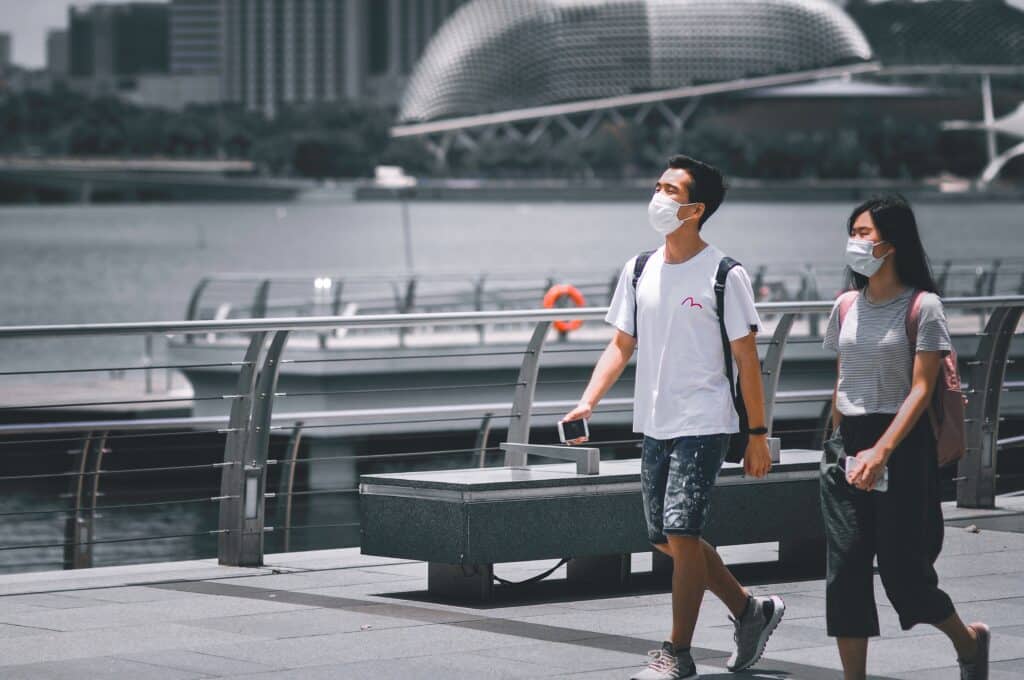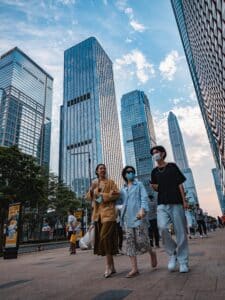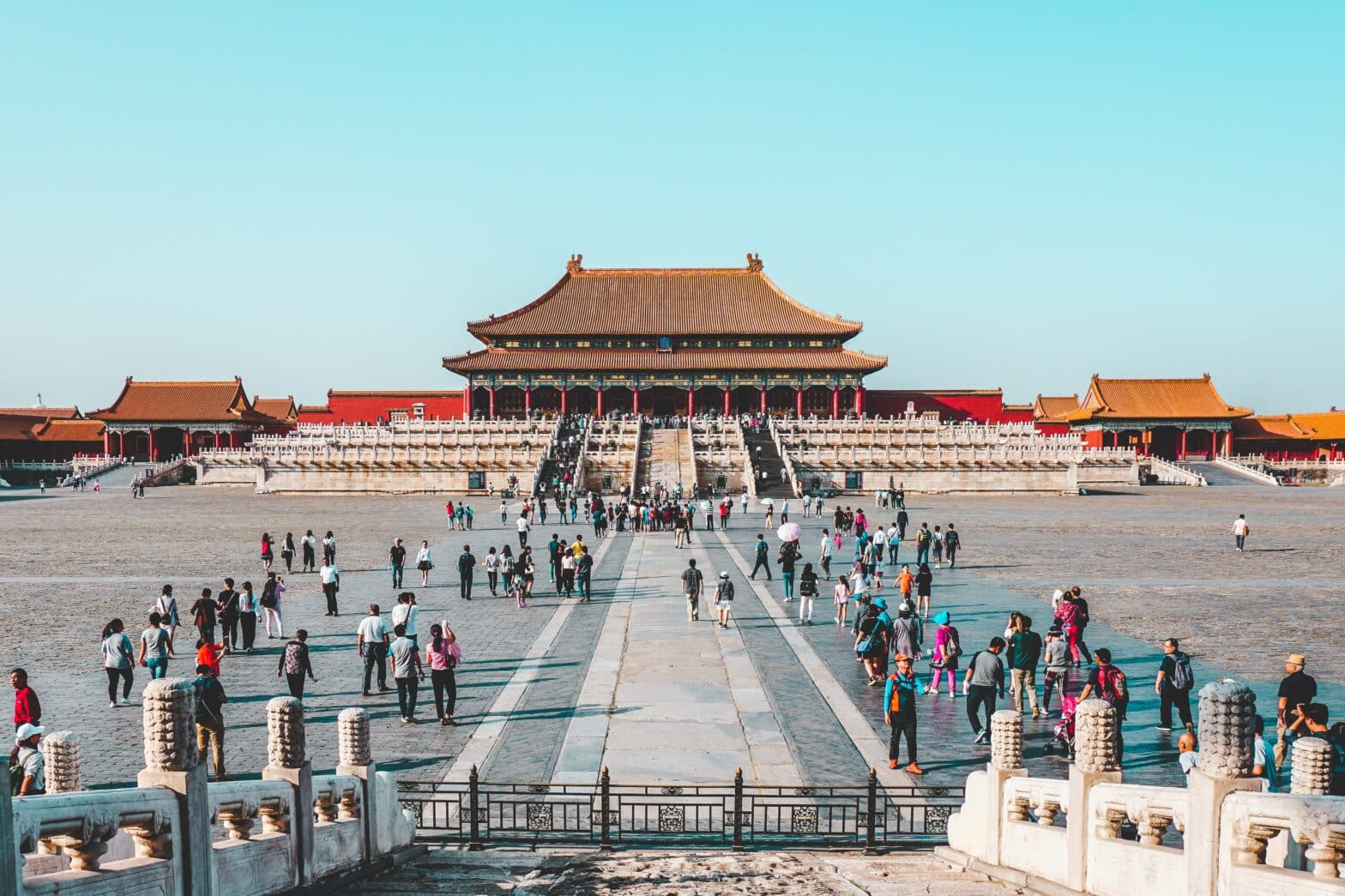Are you all set to begin a new life in the Middle Kingdom? China has become a popular destination for hundreds of thousands of expats from all over the world, lured by great professional prospects and a unique cultural experience. And, when it comes to healthcare, the world’s second largest economy has a few peculiarities… Foyer Global Health is here to provide you with some insights to navigate through these intricacies.
The Chinese healthcare system
China’s healthcare system has undergone significant transformations over the last thirty years, encompassing various aspects such as the organisation of healthcare, medical infrastructure, social coverage and accessibility to health services. The Chinese government has implemented a series of healthcare reforms in order to increase access to healthcare and health coverage for the entire population.
The hospital and specialists at the core of the Chinese healthcare system
Hospital is the backbone of China’s healthcare system. The overwhelming majority of doctors work in hospitals, both public and private, which are generally large-scale establishments. The concept of general medicine exercised at a medical practice or at patients’ homes is virtually non-existent (the concept of a general practitioner or family doctor does not exist). So, if you get sick, you have to go to the hospital. It is interesting to note that nearly 90% of doctors in China are specialists not general practitioners (in “modern” medicine).
Public healthcare facilities are typically divided into two departments: one catering to Chinese people and another reserved for foreigners/VIPs (known as 高干病房). The unit designated for expatriate residents offers medical care with standards fairly close to Western norms in terms of accessibility, confidentiality and quality of care.

However, due to the language barrier, many expats turn to private international hospitals in major cities such as Beijing, Guangzhou or Shanghai. There, they can be treated by English-speaking medical staff in conditions that are on par with, or even surpass, the standards in their home country. Nevertheless, it is important to note that the costs associated with private hospitals are generally higher compared to the charges in the public sector.
Modern medicine and Traditional Chinese medicine (TCM)
Modern medicine and Traditional Chinese Medicine (TCM) are practiced side by side in China. While there are independent TCM clinics, some medical facilities have separate infrastructure for modern medicine and TCM. Chinese patients often favour one medicine or the other depending on the health issue they are facing.

Significant disparities in healthcare provision
The quality of health care and standards in medical establishments can vary significantly depending on the location (rural provinces vs urban areas) and the type of facility. In some public hospitals and rural areas, the standards of medical services and the effectiveness of medical care sometimes are subpar, largely because of overcrowding issues in public hospitals and the mediocrity of health services.
On the other hand, private medical facilities offer excellent medical services, stringent hygiene standards, top-notch equipment, and English-speaking staff.

As a result, healthcare services are highly uneven across the country. If you have a health problem in a remote rural area, it is likely you will need to be transferred to a major city within the country or even abroad, and these costs will typically be your responsibility.
In general, expatriates often prefer to seek treatment in Hong Kong or to be repatriated to their country of origin for major or specialised medical procedures.
Access to healthcare
In public hospitals, access to healthcare is typically on a first-come, first-served basis, or prioritized based on the severity of the medical condition. Consequently, waiting times can be quite long.
To find a healthcare practitioner online and find out where they work, you can consult dedicated platforms such as Chunyu Yisheng. Some healthcare facilities provide mobile applications integrated into Wechat, allowing users to make appointments in advance, streamlining the process.
Both public and private healthcare facilities have emergency services available.
How much do healthcare services cost in China?
In China, the costs of health services vary and depend on the location, the type of establishment and the patient’s profile!
In the public sector, a consultation with a GP costs around 15 CNY (less than two euros) in the “regular” service, whereas in the “VIP” service it costs around 180 CNY (around €25). In a private establishment, the same consultation with a GP can cost as much as €160!
As a foreigner, you can expect to pay a very high price, especially in high-performance private medical facilities where services are very expensive. It’s worth noting that private-sector prices in China are among the highest in the world!
In a renowned private establishment, you should expect to pay around 80,000 CNY (around €10,000) for a vaginal delivery and 120,000 CNY for a caesarean section (the preferred method for many practitioners in China). There are, however, maternity packages that can cut costs by almost half. Although public hospital charges are lower, they can quickly rise in the event of complications.
Social insurance/public health schemes in China
China’s insurance system consists of two categories (rural and urban) and encompasses four health insurance schemes:
- The UEBMI (Urban Employee Basic Medical Insurance) scheme covers employees and self-employed. It is financed through contributions deducted from workers’ wages, as well as contributions from companies and state subsidies.
- The URBMI (Urban Resident Basic Medical Insurance) is designed for children, the elderly and jobseekers in urban areas;
- The NCMS (New Cooperative Medical Scheme) ia available for people living in rural areas. However, this cover is limited and does not cover all medical expenses, especially those related to chronic illnesses.
- Funded exclusively by the Chinese government, the civil servants scheme only covers civil servants

In the past decade, expatriates living and working in China have been obliged to join the local health insurance scheme. However, they also subscribe to an international health insurance scheme to supplement the national plan, as the latter is often insufficient to meet the needs of demanding patients.
International health cover for expatriates: a must-have
Regardless of the obligation of being affiliated to the Chinese social security system, it is crucial as an expat in China to turn to an international health insurance company.
Here’s why:
- You get the freedom freedom and comfort of being covered for quality health services in private health establishment
- You get comprehensive coverage even in the event of complications
- Reduced waiting times for access to medical services
- You get evacuation and repatriation assistance, which is crucial as an expat when you plan to travel to remote areas
It is important to note that even with private health insurance, you may be required to pay upfront for medical services, consultations, hospitalisations or medication.
Why Foyer Global Health?
- Expatriation is ingrained in our DNA: we understand your needs, your profile and your requirements as an expatriate.
- We offer flexible, customised and effective health insurance plans with competitive benefits for your relocation in China and for any trip abroad (compare our plans here)
- In case of emergency, you can be 100% to be fully covered by our policy (repatriation/evacuation assistance)
- We ensure fast and efficient access to the best medical facilities in China and around the world
- You get medical assistance 24/7 (teleconsultation)
- Our offer includes optional maternity cover for expatriates
For any information on our health insurance plans and for a quote, get in touch with our experts!
N.B.: Please note that Hong Kong and Macao have their own healthcare systems. This information provided here pertains solely to mainland China.
